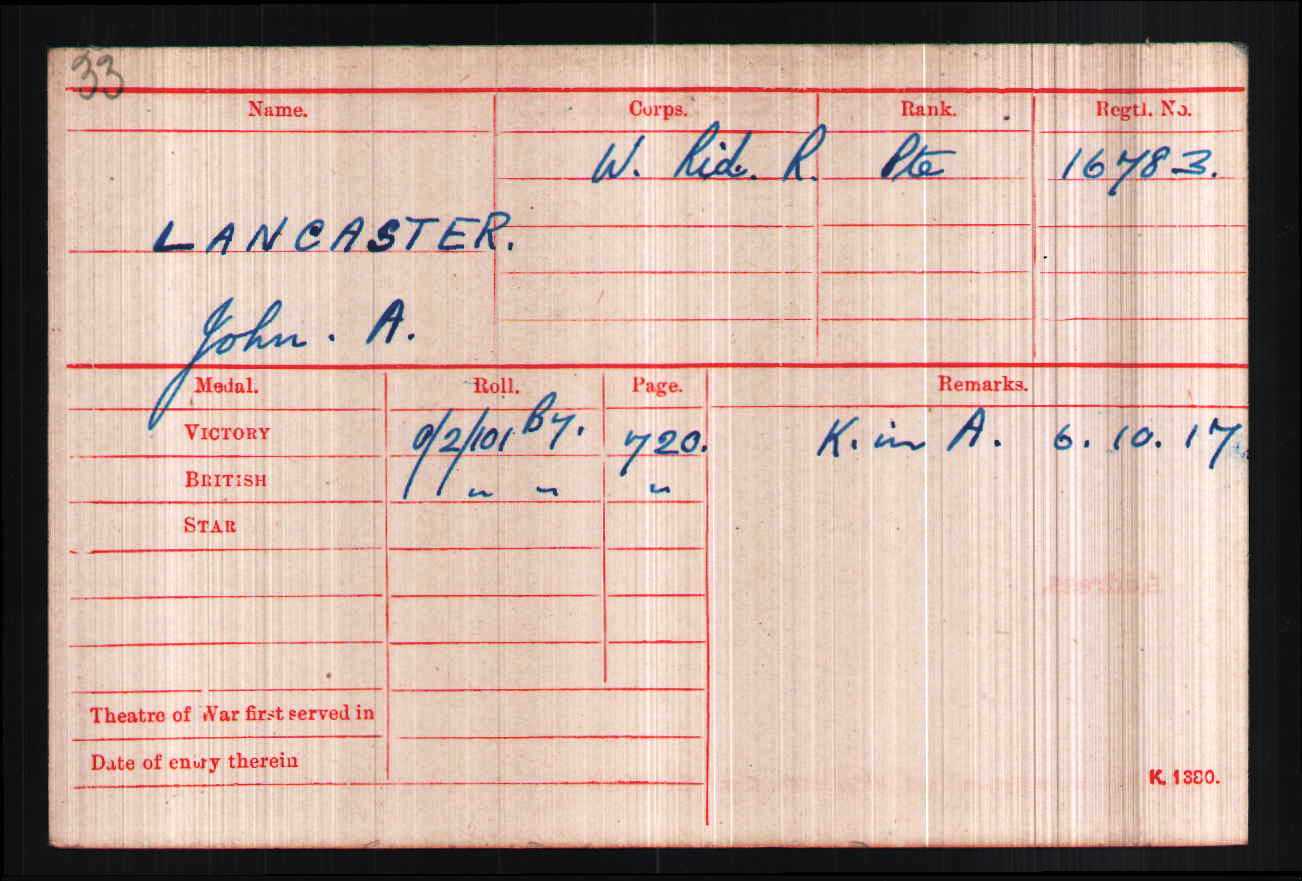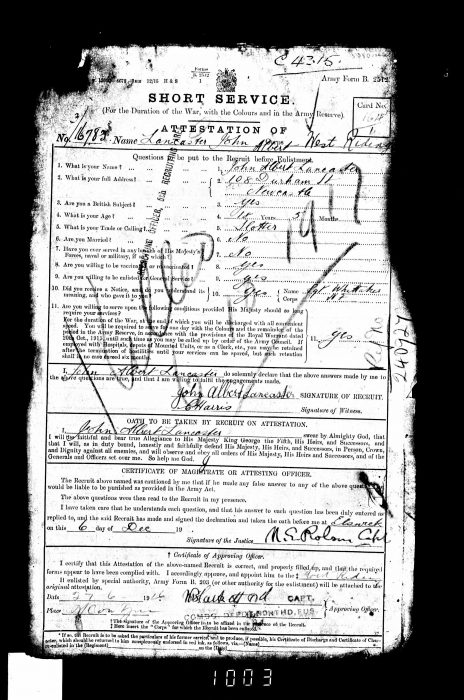
Submitted by Glennis Robson.
John Albert Lancaster was my uncle, he was my mother’s elder brother (13 years older). My mother spoke of much loved brother who was a source of goodness and “spoilt” his baby sister.
On receiving the news of his death my grandmother picked my mother up from school. They made their way home down the back lanes to hide their tears from passers by.
“Jack”,as he was known, was killed on the 16th of October 1917 at hill 60 in Flanders aged 19 after only a few months at the front.
He enlisted in the Duke of Wellington’s (West Riding) regiment on the 6th of December 1916 in Newcastle. His father William, a farrier, also joined up declaring that if his son was prepared to fight so was he. Unlike his son he survived the war. Having no known grave his name is on the Menin Gate. In 1988 my husband Keith and I visited the Western Front to see his name and the battlefield where he died. Since then “our Jack” has been in the consciousness of the wider family. Every November we place a poppy cross by my mother’s grave-stone in St Mary’s churchyard.

Explore more memories from the ribbon
-
Corporal Tommy Edwards
Steven Shackleton told us about his great uncle, Thomas Edwards from Ironbridge. During the First World War, Tommy Edwards was a Corporal in the King’s Own Yorkshire Light Infantry. Prior to the war he had served as 86589 Pte T Edwards with the Territorial Reserve Battalion. He served with the 10th KOYLI and then transfered to the 2nd KOYLI before he was killed in action on 30th September 1918, aged 19. He is buried at Bellicourt British Cemetery in France. His mother was Mrs Francis Edwards of Hoylake, Cheshire and had the following inscription added to the bottom of his headstone: ‘Peace, perfect peace’.
-
Horace Stoney
Horace Stoney was born on 7th December 1897. He was baptised in February 1898 at the Free Methodist Chapel, in Leeds close to where they were living at the time. At the age of 13 he was working as an office boy for an engineer and living at home with his parents in Leeds. On 10th December 1915, three days after he turned 18 Horace went to Leeds, joined the Royal Army Service Corp (RASC) and was posted to the Army Reserve. His service record includes the statement: “Transferred to Learners’ Section” on 10th October 1916. A contract survives, signed by Horace the day previous, declaring that he joined the RASC with a view to be trained as a Motor Transport Driver. Success would guarantee him an additional 1 shilling per day in pay, and provide him with a skill to use after the war. The RASC ensured that ammunition, food and equipment was delivered forming a complex supply network. Horace survived the war, although he contracted malaria, and was discharged in 1919. The 1939 Register lists him as living with his parents, John and Sarah, and his aunt Harriet, at his childhood home in Leeds. He was working as a Clerk Store Highway Constable and although he is listed married, his wife is not mentioned on the record.
-
Harold Carey Matthews
Major Harold Carey Matthews was born in 1879, son of F W W Matthews, he went on to join the 4th Battalion Green Howards where he acted as subaltern during the Second Boer War. After retiring from the military he worked for Barclays Bank at Leyburn, where his father also worked. When World War One broke out he re-enlisted with the Green Howards and was promoted to Major, on 29th August 1914. He was killed in action on the 25th April 1915 near Ypres and is buried at Sanctuary Wood Cemetery, Belgium.
